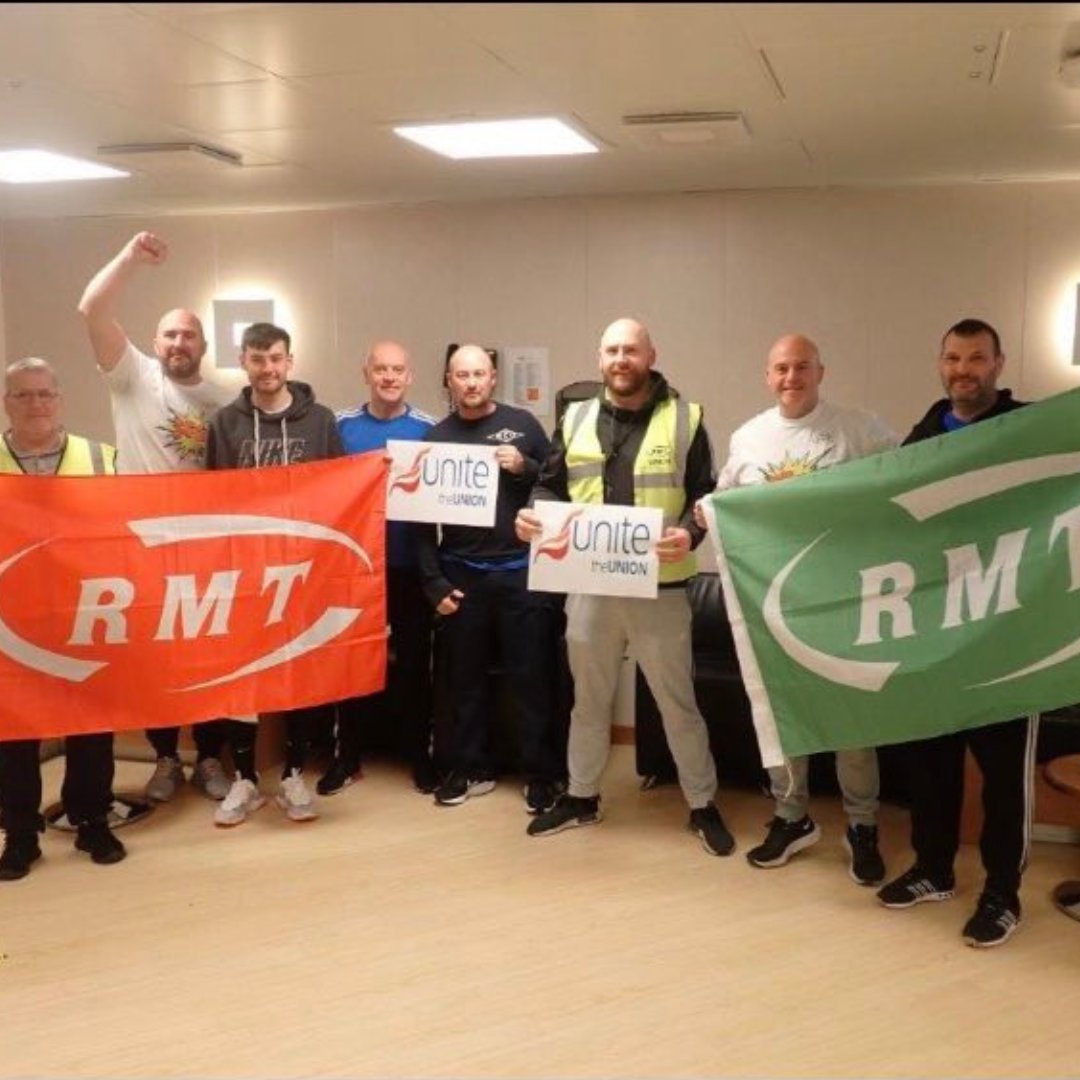Mick Lynch, general secretary of the RMT, said the campaign of industrial action showed that “sustained strike action and unity gets results”…reports Asian Lite News
Members of the RMT union have voted to accept a pay deal and end almost 18 months of strikes across the UK rail network.
The country’s largest transport union on Thursday said its members had “spoken in huge numbers” to accept the offer.
The agreement represents a big breakthrough in the long dispute between rail workers and train operators and the government that first erupted in the summer of last year.
But rail passengers still face disruption in the coming days as Aslef, the train drivers’ union, begins its latest series of walkouts over pay and proposed changes to working practices, with no sign of a deal in sight.
RMT members accepted an offer of a backdated pay rise of 5 per cent for the 2022-23 financial year, plus job security guarantees and no changes to working conditions.
Difficult talks between unions and industry over modernisation will instead be pushed into next year and negotiated at a local level by individual train companies.
Mick Lynch, general secretary of the RMT, said the campaign of industrial action showed that “sustained strike action and unity gets results”.
He added: “We will be negotiating further with the train operators over reforms they want to see. And we will never shy away from vigorously defending our members’ terms and conditions, now or in the future.” With revenues way below pre-pandemic levels, the government has been pushing train operators to cut costs through big changes to working practices — the government controls the purse strings of the industry.
According to industry data released earlier this week, passenger revenues in the 12 months to the end of March were £8.6bn and state subsidies totalled £11.9bn, compared with £12bn and £7.4bn respectively in the year before the pandemic hit.
Mark Harper, transport secretary, said the deal with the RMT was “welcome news for passengers and a significant step towards resolving industrial disputes on the railway”.
The Rail Delivery Group, which represents the industry, said the deal meant agreements have been sealed with three out of the four unions on the rail network. “Unfortunately, the Aslef leadership’s decision to call further industrial action means passengers still face disruption between December 1 and 9,” it said.
Aslef members will stage six days of “rolling” strikes at 16 train companies from Saturday, with drivers at different operators walking out on each day. The union has also imposed an overtime ban, which begins on Friday and will cause disruption across the network until December 9.
“We are determined to win this dispute and get a significant pay rise for train drivers who have not had an increase since 2019 while the cost of living, in that time, has soared,” said Mick Whelan, Aslef’s general secretary.
The union rejected a pay and reform offer worth 8 per cent over two years in April, and rail industry executives are gloomy at the prospect of a deal.



